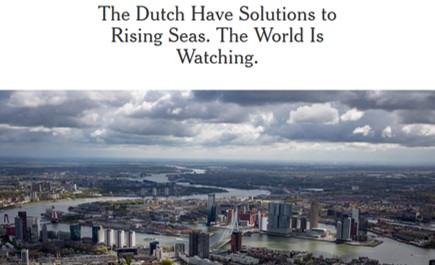 SP001 – Water Governance and the Rise of Global Hydro-hubs as Developmental Actors
SP001 – Water Governance and the Rise of Global Hydro-hubs as Developmental Actors
Convened by Farhad Mukhtarov (Institute of Social Studies (ISS) The Hague), Corinne Ong Pei Pei (National University of Singapore), Des Gasper (Institute of Social Studies (ISS) The Hague). See the video introduction below.
This panel discusses the rise of Global Hydro-Hubs (GHHs) as part of an on-going scramble for new water-related markets and considers the implications for global solidarity for development. With climate change effects on the rise, demand for water governance expertise soars around the world. This demand offers lucrative business opportunities and various countries have sought to brand themselves as GHHs. GHHs often receive policy support from their home nations and cities, which lend legitimacy to their existence and purpose. However, as GHHs seek to expand their influence, possible tensions between global solidarity for development, geo-political and economic incentives remain understudied and require attention through the lens of critical policy research.
GHHs are nations and cities that brand themselves as centers of excellence in water engineering, management and governance and, by implication, as a natural choice for future clients to turn to with water-related problems. Countries such as USA, UK, The Netherlands, Israel, China, South Korea and Singapore have sought to be seen as GHHs. Aggressive branding, extensive networking and implementation of projects on the ground are some of the strategies that GHHs use to set foot in the new markets. A key narrative that enables the rise of GHHs is the possibility of a “triple-win”, that is, a) promote development by helping client countries solve water issues; b) bring profits to a GHH; and c) advance the geopolitical profile of a GHH as a reliable development partner. Whether the “triple-win” is possible in practice remains an empirical question. We invite conceptual and empirical contributions that reflect any of the issues raised above. More specifically, we invite future panelists to submit papers and/or prepare presentations that react to one or more of the following questions.
- Are the triple goals of achieving economic spin-offs, asserting a geopolitical stature and advancing global public goods, such as sustained peace and social justice, compatible with each other?
- What are the major elements, processes, and mechanisms through which GHHs brand their water sector internationally? Such strategies may include but are not limited to: presenting external demand for GHH services as “natural”, packaging past domestic achievements as globally relevant, asserting universality of the GHH expertise, stressing political neutrality of a GHH.
- What are the processes and outcomes of water planning and management projects on the ground that have been implemented with support and/or funding by GHHs as part of a larger strategy of branding and merchandising their water sector?
- What are the larger implications of the rise of GHHs for water governance expertise and its mobility, especially with regard to achieving the water related Sustainable Development Goals (SDGs)?
The abstracts of talks presented at the conference can be downloaded here.